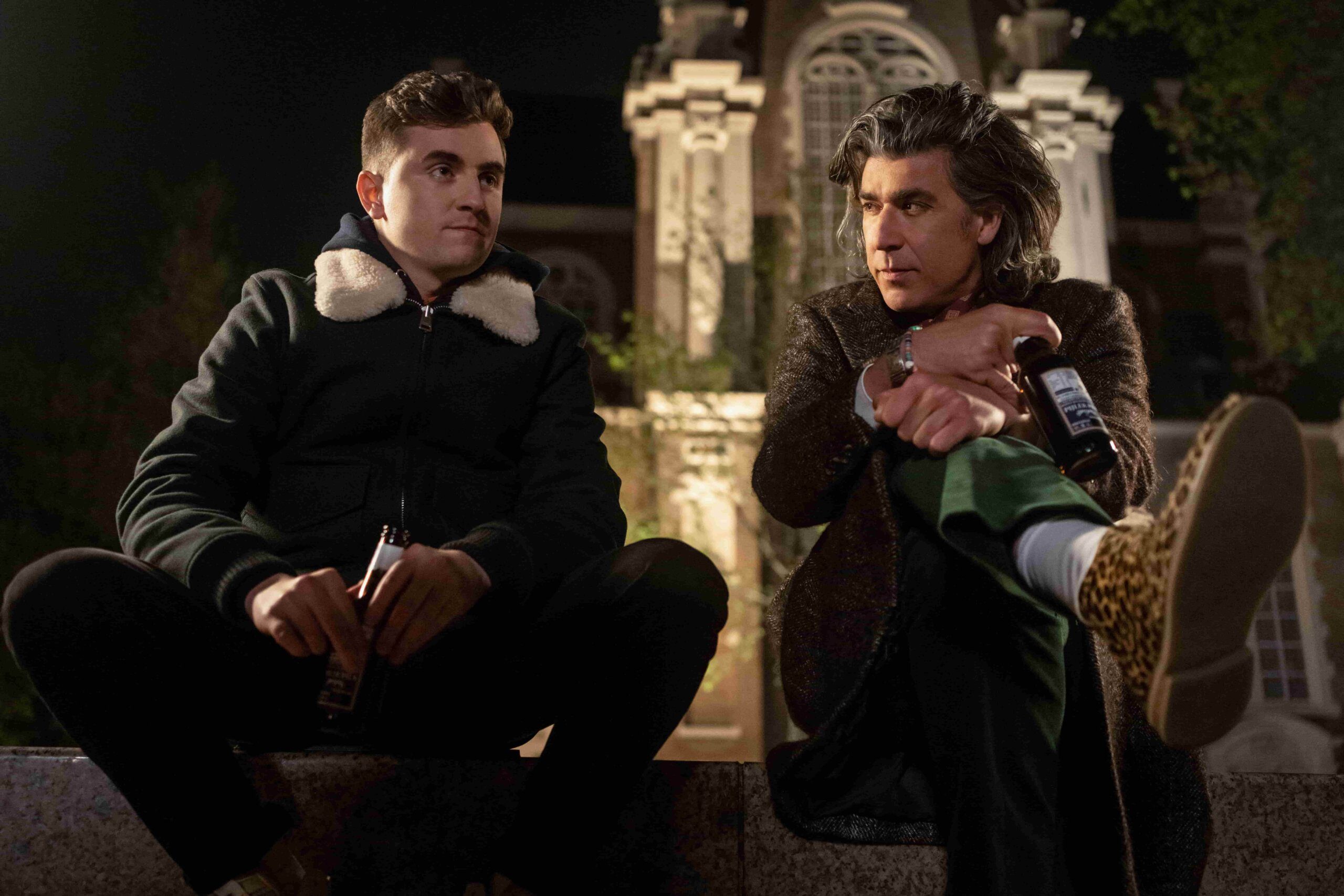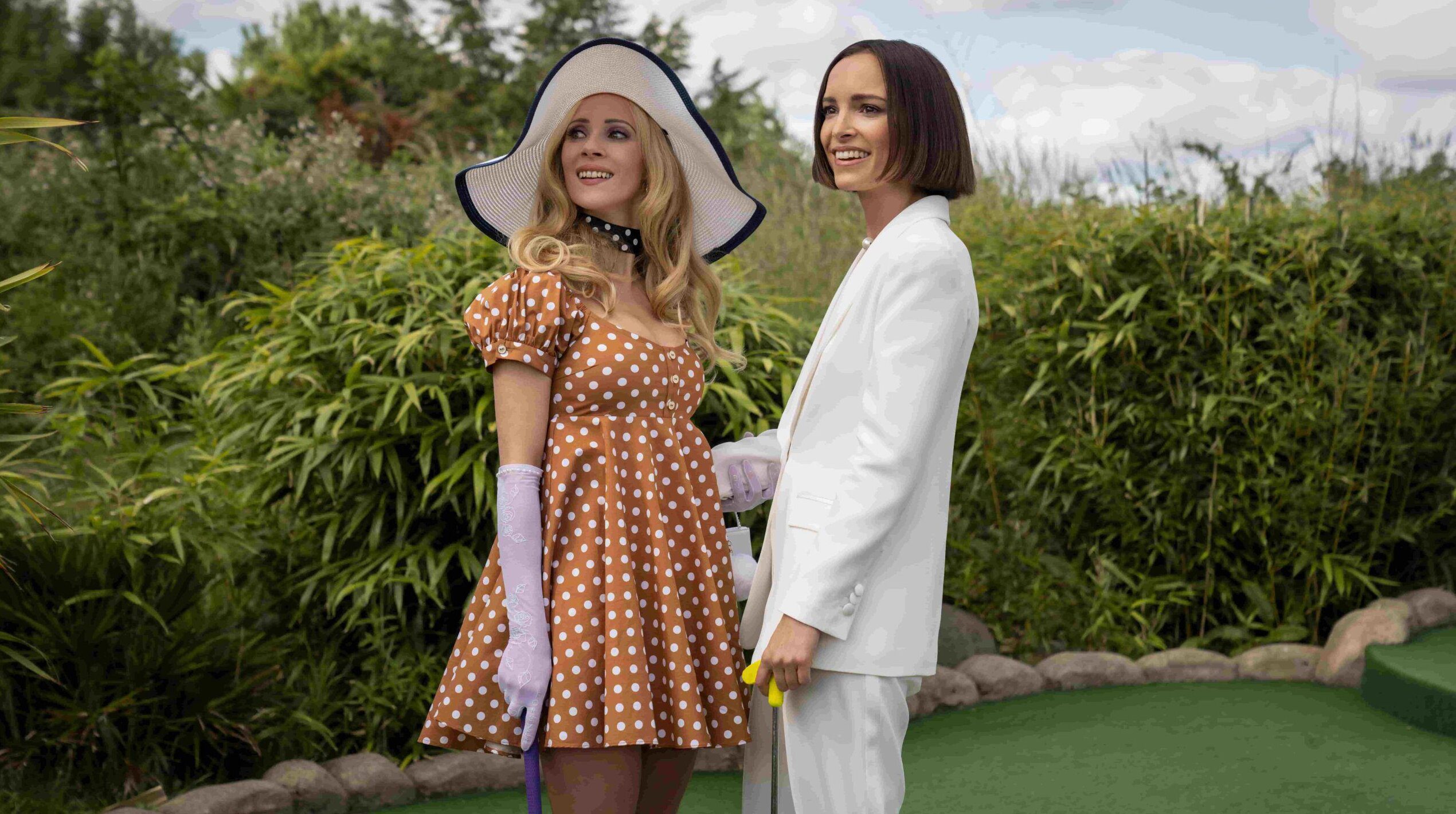Ted Lasso is, without a doubt, one of the most beloved television series to have aired in the past few years, though many of its fans feel the series has lost its way in Season 3. One aspect that has improved this season, however, is the presence of LGBTQ2S+ representation—which was sorely lacking up until this point.
Thanks to a number of welcome developments in its third and likely final season, the show now has three major queer characters: AFC Richmond soccer player Colin Hughes (Billy Harris), journalist Trent Crimm (James Lance) and PR consultant for AFC Richmond Keeley Jones (Juno Temple). But while the consistently heartwarming comedy-drama hit the nail on the head with Colin’s storyline, effectively portraying the mental and emotional turmoil that comes with grappling with one’s own queerness and coming out to loved ones, the attempt to portray Keeley’s newfound bisexuality was a missed opportunity to provide its audience with much-needed authentic queer female representation from start to finish.
As a bi woman and a dedicated Keeley stan, I was elated when the series introduced Jack Danvers (Jodi Balfour)—the venture capitalist funding Keeley’s PR firm—in Episode 4, and it became clear that Keeley’s next love interest would be a woman. I did have my hesitations from the start, considering Jack’s role as Keeley’s ultra-wealthy boss, but I was hopeful the writers would find a way to use the relationship to say something of depth about the fluidity of sexuality and how it feels to come to terms with this in adulthood.
Sadly, Keeley and Jack’s story arc—which came to an abrupt and upsetting end after just a few episodes—left me sorely disappointed. Not once does the audience get to see Keeley experience confusion, fear or frankly any feelings at all about what this new relationship means for her identity as a woman who previously—at least to the audience’s knowledge—only dated cis men. This emotional process, which is a reality for most people entering a queer relationship for the first time, but especially those who do so later in life, should have been an integral part of Keeley’s story.
At one point in Episode 7, we do see Keeley getting flustered when Jack kisses her in front of her employees, but it quickly becomes clear that Keeley is merely stressed about getting in trouble for having an office relationship and not at all about being perceived as queer by other people for the first time. “Sorry, I am just not built for a secret office romance,” she tells Jack when asked what’s wrong. Jack’s solution is to announce their relationship to the entire office, and Keeley is visibly touched by this grand gesture. Any feelings of apprehension quickly disappear.
But Jack and Keeley’s relationship doesn’t stay good for long. It’s evident early on that things are bound to get messy considering the power dynamic at play, and it’s not long before Jack begins showering Keely with gifts, engaging in a toxic dynamic called “love bombing”—which Rebecca (Hannah Waddingham) aptly points out to Keeley during one of their “girl talk” sessions in Episode 7.
After Keeley’s nudes are leaked in Episode 8, Jack is unsupportive and judgmental, urging her to release an apology statement to her followers on social media, much to Keeley’s dismay. Jack is later embarrassed to introduce Keeley as her girlfriend to a friend they run into while playing mini-putt. Jack ghosts Keeley not long after, and Keeley tells Rebecca she’s “not heartbroken, more like heartbent.” And yet, through all these ups and downs, there remains no acknowledgement of the fact that this is Keeley’s first queer relationship or how she feels about it. There is the possibility that Keeley has been out as a bi woman since before this relationship and even had queer relationships previously—though we as an audience have never seen it before—but viewers deserved more insight into Keeley’s psyche throughout this relationship even so. And the relationship itself deserved more development than the toxic whirlwind it so quickly became. Hollow, empty representation is not necessarily better than none at all.

Credit: Courtesy of AppleTV+
Keeley’s queer storyline is especially disheartening when contrasted with the thoughtful way in which Colin’s journey with his sexuality is portrayed. Colin has known of his queerness for his entire life, and yet he has long struggled to be honest about who he is with his friends and family. “My whole life is two lives, really,” Colin tells Trent during a particularly touching scene about the challenges of coming out. “I’ve got my work life—no one at the club knows. I’d like to think they wouldn’t care, but it’s just easier that way. Then I’ve got my dating life.” He goes on to describe the “ache” he feels for both of his lives to become one, a common feeling for queer folks in the closet. Colin’s story is handled with care and nuance, which is relatively unsurprising for a series that has historically excelled at handling difficult topics including mental health, divorce, toxic masculinity and systemic racism. And yet it appears the series’ only queer woman character is exempt from that standard.
Keeley has always been a strong, confident character who is unapologetically herself, but it’s simply unrealistic to claim she wouldn’t experience some kind of emotional journey while discovering her queerness. I consider myself a fairly confident, secure person, and I’m lucky enough to be surrounded by progressive, accepting people who embraced me with love when I told them I was bi. And yet, coming to terms with my new identity has been messy, challenging and emotional, to say the least. After my very first date with a woman, I came home and cried to my best friends—not because it was a bad date, but because I needed to process how it felt to be perceived as a queer person in public for the first time. It brought up feelings of excitement and affirmation, yes, but also feelings of grief for the person I once believed I was.
As many Ted Lasso fans predicted, Keeley and Roy seem to be on the verge of getting back together (he’s seen walking out of her bedroom in her robe after taking responsibility for their breakup in Episode 9, and he tells her wants to be more than friends in Episode 10). I love Roy and Keeley together as much as the next viewer, but I reject the outdated, tired trope that women who date other women do so only as a blip in their overarching love story with a man. Love between two women is valid on its own, and Sapphics deserve to see that represented in pop culture. Portraying it as an “experiment,” a rebound or something to try before returning to “real” relationships with cis men does a disservice to the bi/pan folks who already struggle to feel that their same-sex relationships are as valid as their straight-presenting relationships. The implication is that Keeley doesn’t need to process her feelings about being queer because they don’t matter, since she would’ve inevitably ended up with a man regardless.
We deserved to see the honest side of Keeley’s journey—not just the fun, flirty date nights and makeout sessions before it all turned sour. Even her relationship with the formerly immature, self-obsessed star player Jamie Tartt (Phil Dunster) featured more depth than her relationship with Jack. Perhaps most disappointing is the fact that the show’s approach hearkens back to an outdated way of portraying femme bi women and lesbians which queer storytellers have worked hard to retire in recent years. For so long, love between two women was dismissed and manipulated for the male gaze—seen only as sexy entertainment for men without being viewed as a legitimate form of love all on its own—and Keeley and Jack’s relationship is eerily reminiscent of this bygone era.
It’s difficult to forgive Ted Lasso for fumbling what was initially an exciting opportunity to show a kind of love it has yet to portray, especially as so many television shows about Sapphic love have been cancelled recently. Still, I’m thankful it at least got one of its queer storylines right. I can only hope Colin’s story made the series’ queer male viewers feel represented, respected and seen in all the ways Keeley’s story didn’t.


 Why you can trust Xtra
Why you can trust Xtra


